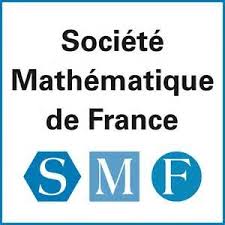[Mathématiques et moralité à la pointe de la modernité]
Cette note suggère qu'une façon féconde d'étudier l'histoire des mathématiques est de considérer les visées pédagogiques de ces dernières. Afin d'illustrer les grandes orientations qu'une telle approche peut définir, l'article étudie les arguments qui ont été mis en avant au début de l'époque moderne en faveur de l'utilité pratique des mathématiques et de ses capacités à inculquer de bonnes habitudes de pensée. Il examine aussi l'apparition à la fin du xviiie et au début du xixe siècles de nouveaux usages pour l'éducation mathématique, qui servent les intérêts de l'État en cours de modernisation, avec l'accent mis de manière caractéristique sur les critères impersonnels d'évaluation des individus. L'article vise une approche de la pédagogie mathématique, qui refuse de la traiter comme non problématique et qui cherche des réponses dans l'histoire sociale et culturelle.
This note suggests that a fruitful way of investigating the history of mathematics lies in consideration of its pedagogical purposes. As a general illustration of the directions that such an approach might take, the paper discusses early-modern arguments for the practical utility of mathematics and its capacity to inculcate good habits of thought, as well as the appearance of new uses for mathematical training in the later eighteenth and early nineteenth centuries that served the purpose of the modernizing state, with its characteristic emphasis on impersonal criteria of evaluation and assessment of individuals. The paper encourages an understanding of mathematical pedagogy that refuses to treat it as unproblematic, and that seeks answers in social and cultural history.
@article{RHM_2001__7_2_277_0,
author = {Dear, Peter},
title = {Mathematics and {Morality} on the {Cusp} of {Modernity}},
journal = {Revue d'histoire des math\'ematiques},
pages = {277--293},
publisher = {Soci\'et\'e math\'ematique de France},
volume = {7},
number = {2},
year = {2001},
zbl = {1029.00005},
language = {en},
url = {http://archive.numdam.org/item/RHM_2001__7_2_277_0/}
}
Dear, Peter. Mathematics and Morality on the Cusp of Modernity. Revue d'histoire des mathématiques, Tome 7 (2001) no. 2, pp. 277-293. http://archive.numdam.org/item/RHM_2001__7_2_277_0/
[1] [1997] Engineering the Revolution: Arms and Enlightenment in France, 1763-1815, Princeton: Princeton University Press, 1997.
[2] , ed. [1999] Sir Thomas Gresham and Gresham College, Aldershot, Hampshire: Ashgate, 1999. | MR
[3] [2000] The New Organon, ed. and trans. by Lisa Jardine and Michael Silverthorne, Cambridge: Cambridge University Press, 2000.
[4] [1994] ‘Un modèle à l'épreuve: L'École polytechnique de 1794 au Second Empire,' in Belhoste (Bruno), Dahan Dalmedico (Amy) and Picon (Antoine), eds., La formation polytechnicienne, 1794-1994, Paris: Dunod, 1994, pp.9-30.
[5] [1987] French Higher Education in the Seventeenth and Eighteenth Centuries: A Cultural History, Oxford: Clarendon Press, 1987.
[6] [Opera] Opera mathematica, 4 vols in 5, Moguntiae, 1611-12.
[7] [1821] ‘Discours préliminaire de l'Encyclopédie,' in Œuvres complètes de D'Alembert, 5 vols., Paris: Belin, 1821, vol.1, pp.17-99.
[8] [1995] Discipline and Experience : The Mathematical Way in the Scientific Revolution, Chicago : University of Chicago Press, 1995. | MR | Zbl
[9] , ed. [1970] Science and Education in the Seventeenth Century, New York: Science History Publications, 1970.
[10] , ed. [1978] Man and Nature in the Renaissance, Cambridge : Cambridge University Press, 1978.
[11] [1989] Cambridge in the Age of the Enlightenment: Science, Religion and Politics from the Restoration to the French Revolution, Cambridge: Cambridge University Press, 1989. | MR
[12] [1984] Mathematics and Meritocracy: The Emergence of the Cambridge Mathematical Tripos, Social Studies of Science, 14 (1984), pp.547-584.
[13] & [1986] From Humanism to the Humanities: Education and the Liberal Arts in Fifteenth and Sixteenth-Century Europe, Cambridge, MA: Harvard University Press, 1986.
[14] [1984] The Mathematicians' Apprenticeship: Science, Universities and Society in England, 1560-1640, Cambridge: Cambridge University Press, 1984. | MR | Zbl
[15] [1914] Leviathan (1651), London: Dent Dutton, Everyman's Library, 1914, p.19.
[16] [1988] ‘Epistemology of the Sciences', in Skinner (Q.), Schmitt (C.), Kessler (E.), and Kraye (J.), eds., The Cambridge History of Renaissance Philosophy, Cambridge: Cambridge University Press, 1988, pp.685-711.
[17] [1995] The Transformation of Natural Philosophy: The Case of Philip Melanchthon, Cambridge: Cambridge University Press, 1995.
[18] [1704] Joannis Clerici Opera Philosophica, 4 vols., 3rd ed., Paris, 1704.
[19] [1996] Some Thoughts Concerning Education and Of the Conduct of the Understanding, Ruth W. Grant and Nathan Tarcov, eds, Indianapolis: Hackett, 1996.
[20] [1996] Philosophy of Mathematics and Mathematical Practice in the Seventeenth Century, New York: Oxford University Press, 1996. | MR | Zbl
[21] [1998] Kepler's Tübingen: Stimulus to a Theological Mathematics, Aldershot, Hampshire: Ashgate, 1998. | MR | Zbl
[22] [1997] Mathematics as a Tool for Social Change: Educational Reform in Seventeenth-Century England, The Seventeenth Century, 13 (1997), pp.23-36.
[23] [1992] L'invention de l'ingénieur moderne: l'École des Ponts et Chaussées, 1747-1851, Paris: Presses de l'École Nationale des Ponts et Chaussées, 1992.
[24] [1995] Trust in Numbers: The Pursuit of Objectivity in the Science and its Public Life, Princeton: Princeton University Press, 1995.
[25] [1635] De mathematicis disciplinis libri duodecim, 1635.
[26] [1994] A Social History of Truth: Civility and Science in Seventeenth-Century England, Chicago: University of Chicago Press, 1994.
[27] , ed., [1984] Occult and Scientific Mentalities in the Renaissance, Cambridge: Cambridge University Press, 1984.
[28] , ed., [1994] Robert Boyle, Right Reason, and the Meaning of Metaphor, Journal of the History of Ideas, 55 (1994), pp.235-257.
[29] [1913] Vivès: On Education. A Translation of the ‘De tradendis disciplinis' of Juan Luis Vivès, ed. by Watson (Foster), Cambridge: Cambridge University Press, 1913.









